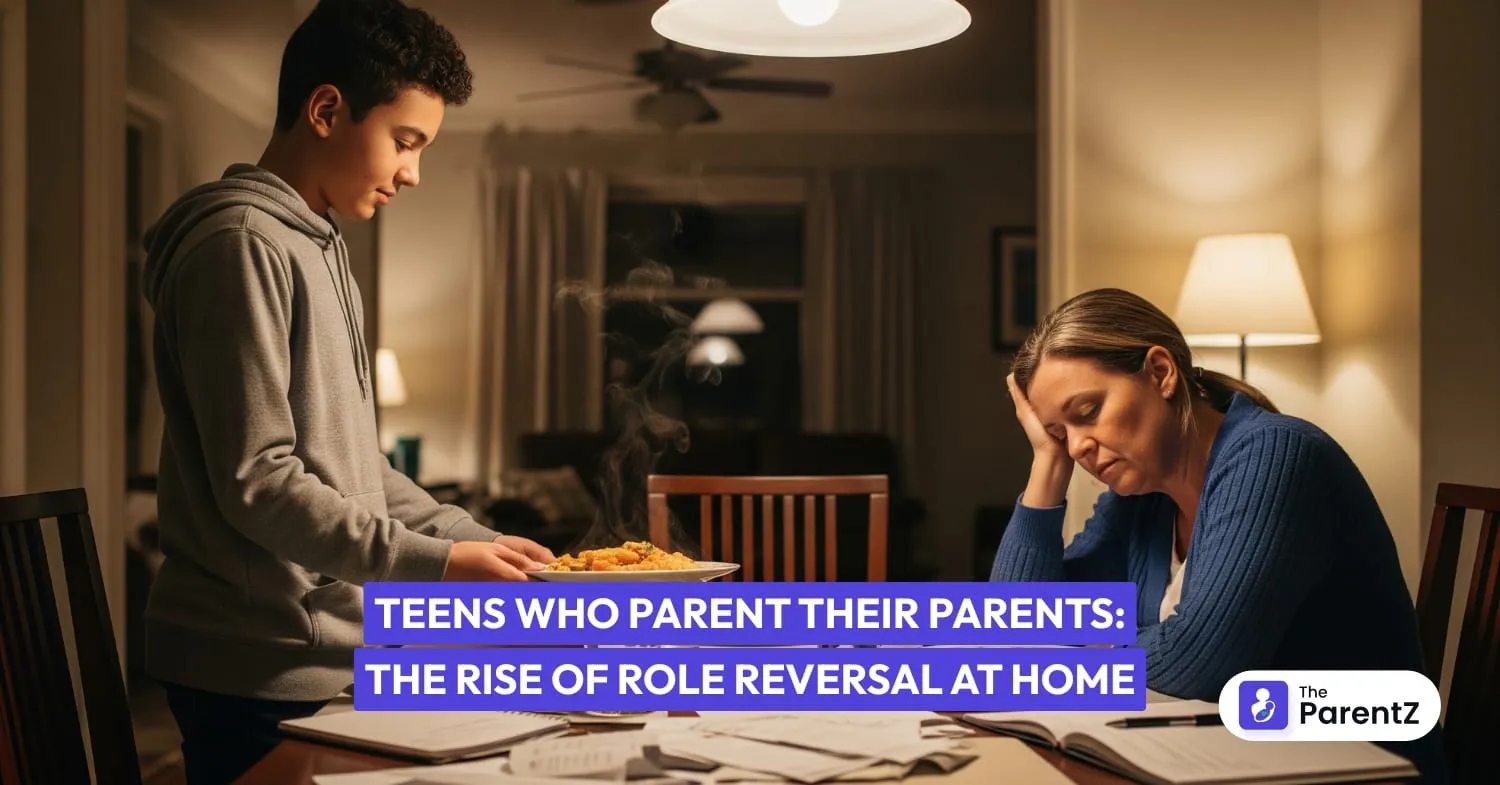Imagine being 16 and worrying about whether your mom remembered to pay the electric bill. Picture yourself at 14, making dinner every night because your dad can't seem to get it together. Think about being the one who has to wake up your parent for work, manage the household budget, or talk your mom through another emotional breakdown.
If this sounds familiar, you're not alone. More teens than ever are finding themselves in a position they never asked for, being the parent to their own parents.
What Does It Look Like When Teens Become Parents?
This isn't about teenage pregnancy. This is about something completely different and arguably just as serious. It's about kids who come home from school not to do homework or hang out with friends, but to check if their parents have eaten anything today. It's about teenagers who lie awake at night worrying about adult problems that shouldn't be on their shoulders.
"I get home and immediately check what mood my mom is in. If she's had a bad day, I know I'll be the one listening to her problems for hours, making dinner, and basically running the house. My friends are worried about prom dresses, and I'm worried about keeping the lights on."
This role reversal shows up in many ways:
- Taking care of younger siblings because the parent can't or won't
- Managing household responsibilities like bills, groceries, and cleaning
- Being the emotional support system for a struggling parent
- Making major family decisions that adults should be handling
- Missing out on normal teen activities to stay home and "keep things together"
Why Is This Happening More Now?
Several things are creating this perfect storm. Mental health struggles among adults have increased dramatically. Economic stress is hitting families harder. Some parents are dealing with addiction, depression, or anxiety, which makes it hard for them to function as adults.
Social media hasn't helped either. Many parents are so caught up in their online lives or personal drama that they've checked out of actual parenting. Others are going through messy divorces and lean on their teenagers for emotional support that should come from other adults.
Then there are parents who simply never learned how to be adults themselves. They had kids young or grew up in dysfunctional homes, and now they're repeating the cycle without even realizing it.
The Real Cost on Teenagers
Many adults don't seem to get that this isn't just "helping out around the house." This is fundamentally changing who these kids are during the most important years of their development.
When you're 15 and constantly worried about adult problems, you don't get to be 15. You don't get to make mistakes and learn from them in a safe environment. You don't get to explore who you are or what you want to become. Instead, you become hypervigilant, anxious, and way too responsible for your age.
"I can't even enjoy hanging out with friends because I'm always thinking about what's happening at home. Last week, I left a party early because my mom was texting me about being lonely. My friends think I'm weird, but they don't understand that if I don't go home, no one takes care of her."
The psychological impact is severe. These teens often develop anxiety disorders, depression, and something called "emotional parentification," where they become the emotional caretaker for their parent. They grow up too fast in some ways but miss crucial developmental milestones in others.
The Guilt That Keeps Them Trapped
One of the cruelest parts of this situation is the guilt these teenagers feel. They love their parents. They don't want to abandon them. But they also desperately want to just be kids.
"Sometimes I get angry and think about what it would be like to have normal parents. Then I feel terrible because I know my mom is struggling. But I'm struggling too, and no one seems to care about that part."
This guilt keeps many teens trapped in these unhealthy dynamics. They feel responsible for their parents' well-being and believe that if they step back, everything will fall apart. The truth is, it's not their job to hold everything together, but they've been conditioned to believe it is.
Breaking the Cycle
If you're a teenager reading this and thinking, "This is my life," know that what you're experiencing isn't normal or okay. You deserve to have a childhood. You deserve to worry about age-appropriate things, not adult responsibilities.
Here are some steps that can help:
- Talk to a trusted adult outside your family like a teacher, counselor, or relative
- Set small boundaries where you can, even if it feels uncomfortable at first
- Remember that your parents' problems are not your fault or your responsibility to fix
- Look into support groups for teens in similar situations
- Consider family therapy if your parent is open to it
For parents who recognize themselves in this article, it's not too late to change. Getting help for your own issues, whether that's therapy, addiction treatment, or learning better coping skills, is the best gift you can give your teenager.
Conclusion
Teenagers shouldn't have to parent their parents. They shouldn't have to sacrifice their youth to keep their family functioning. While some responsibility and helping out are normal and healthy, complete role reversal is damaging and unfair.
Every teenager deserves the chance to grow up at their own pace, make age-appropriate mistakes, and focus on figuring out who they are. When we ask them to be adults before they're ready, we rob them of something they can never get back.
The first step toward change is acknowledging that this is a real problem affecting real kids. These teenagers aren't being dramatic or selfish; they're asking for something every child deserves: the right to be a child.






Be the first one to comment on this story.